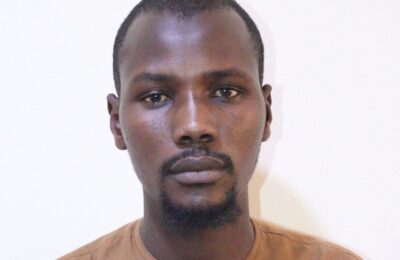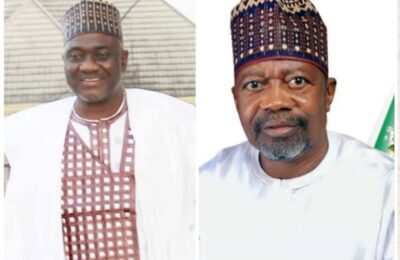When a nation continually recycles its follies, painting decay in new democratic colours, the result is neither progress nor peace—it is prolonged paralysis. Nigeria, once affectionately dubbed the Giant of Africa, now oscillates between unfulfilled messianic dreams and institutional betrayal. Like a broken compass, her moral and political directions shift with every passing regime, yet her destination remains elusive. The story of Gideon’s army in Judges 7 is not just a theophany of divine precision; it is a metaphor for what could have been—if only we listened.
Gideon began with 32,000 men, but God demanded a reduction. Not a democratic vote. Not a committee decision. A divine elimination. The terrified were the first to leave. Then came the disqualified—those who drank carelessly from the river. Only 300 remained. These were not mighty men by human standards, but they were disciplined, discerning, and divinely chosen. Nigeria, by contrast, suffers from an overpopulated leadership ecosystem bloated with political parasites. We have 36 states, 774 local governments, over 400 legislators, and an army of advisers and aides. Our problem is not scarcity of numbers but bankruptcy of values.
The Nigerian political arena is replete with men who arrived through fear and stayed by fraud. While Gideon’s soldiers watched with vigilance, our leaders sleep in opulence. Nepotism has replaced merit; sycophancy has replaced service. We have become a nation where loyalty to tribe supersedes loyalty to truth.
Gideon’s army won by alignment—not by weapons. Their torches, trumpets, and jars represented faith, strategy, and unity. Nigeria has lost this trinity. Instead, we wield constitutional swords without conscience. We have transformed democracy into a diabolical game of thrones. Votes are bought, mandates are mocked, and those who dare to dissent are branded enemies of the state.
In every generation, God reduces the crowd to reveal character. Nigeria increases the crowd and conceals character. We multiply ministries, inflate salaries, and erect edifices of incompetence while the people perish for lack of leadership. The spiritual implication is grave: We have rejected divine pruning for political padding.
Our religious institutions are not exempt. The Church in Nigeria, once a prophetic voice, is now often an echo of political power. The few prophets who stand as watchmen are labelled radicals or threats. The majority have chosen the bread of comfort over the cross of conviction. Pastor Chris Oyakhilome once lamented, “When a man of God loses the ability to say ‘Thus saith the Lord,’ he has ceased to be a prophet.”
Gideon’s 300 were men who could discern water from warfare. They knew how to drink without distraction. Nigeria needs leaders who drink with discipline—who handle power without intoxication. Yet, we have built shrines to mediocrity. We praise looters for philanthropy. We elevate rogues for rhetoric.
The Islamic thinker Ibn Khaldun once wrote, “Injustice ruins civilization.” Nigeria’s decay is not due to nature’s curse but to our nurtured negligence. We mismanage oil, misplace education, and misuse religion. We sow corruption and reap conflict.
In Gideon’s camp, not all who started remained. Nigeria must learn to say goodbye to political excess. The pruning must begin with laws that value competence over connections. Our electorate must be retrained—not merely to vote, but to discern. Citizenship must be baptized with civic responsibility. The media must choose truth over trends.
Nigeria doesn’t need another conference. She needs consecration. She doesn’t need more politicians. She needs a prophetic remnant—Gideons who walk in humility, yet carry the rod of divine authority. Leaders who tremble at truth, who fear not man, who love not silver.
We must put down our broken swords—symbols of past betrayals—and take up the torch of integrity. The healing of Nigeria is not in the multitude but in the minority who still believe. As the Igala proverb says, “A river that forgets its source dries up in shame.” Let Nigeria return to her moral source. Let her remember the ancient landmarks of justice, equity, and godliness.
Let us not merely mourn Nigeria. Let us remake her—through sacrifice, truth, and vigilance. Like Gideon, the new Nigeria will not arise from the crowd, but from the crucible. From the remnant. From the refined.
– Inah Boniface Ocholi writes from Ayah – Igalamela/Odolu LGA, Kogi state.
+2348152094428 (SMS Only)




